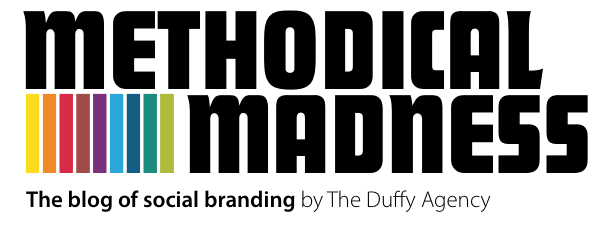What the pharmaceutical industry can teach us about social media
 Saturday, August 27, 2011 at 10:00AM
Saturday, August 27, 2011 at 10:00AM Social media marketing has grown faster than most any other business discipline (and I use the term "discipline" loosely) in the last 50 years. And like many new disciplines, it has been going through growing pains. Social marketing has always had its critics. Some celebs have even announced it death. But this is to be expected with any new discipline. What's happening today in social media marketing is reminiscent of the trials and tribulations of the pharmaceutical industry in the late 19th century.
Back then, chemistry and industry came together and created well-known brands such as Merck, Bayer and Pfizer. It seemed there was no ailment that modern science could not cure. Unfortunately, this also gave rise to snake-oil salesmen selling tonics and potions to cure everything from headaches to hair loss, with no real idea what they were selling or how to properly use it.

There was such a rush to be first to market that proper research was often pushed aside—sometimes with disastrous results. Bayer, for example, created a brand new product to help morphine addicts kick their habits called Heroin (yes, Heroin was a brand name, but thanks to the Treaty of Versailles we can all use it now...so to speak). The only sign of efficacy people looked for was if it made you feel good. If it did, they reasoned, it must be curing you. That's how we end up with cocaine-laced pain medications.

Social media marketing is going through a similar process. Since its inception, much of social media's efficacy has been based on anecdotal evidence with little thought to research and true causation studies. In fact, if you look at some social media marketing reports, the numbers seem very promising on the outside, yet a bit more in-depth study reveals serious flaws in their research (read our " Don't believe everything you read about social media" post) .
That's why it was refreshing to listen to Dan Zarrella's The Science of Social Media Webinar this week. What Dan does best is take aim at, what he calls, "unicorns and rainbow" advice from social media experts. In other words, he tries to put science behind the hyperbole with interesting and sometimes surprising results. For example, according to Dan and the numbers he's looked at, the idea that "engaging in the conversation” is important, really isn't. The most important thing, as we've all heard before, is publishing interesting content. Dan will also be the first to tell you that his research is not iron clad, but he makes the best inferences based on the data he can collect. But the promising part is that the marketing industry is starting to look at social media with a more critical, research-focused eye.
Social media has a bright future but it is still in its infancy. And despite what you may hear, social media is not a magic tonic that will cure all your marketing ills. It can be an effective part of your overall marketing program, but it takes more than just showing up. Like a 19th century patient downing elixirs filled with opiates, simply creating Twitter accounts and Facebook pages may make you feel good, but is it really fixing the problem? Social media—like any marketing effort—takes serious thought, thorough research and a solid strategy.
At The Duffy Agency, we have a motto that says "we don't guess, we know." What that means is that when we develop any type of marketing campaign, we never assume; we take the time to find out. The same is true with social media. Your social media campaign needs to be based on strategy not just tactics. And if someone tells you all you need to do with your social media marketing is simply show up and "engage in the conversation," watch out. They could just be trying to sell you something.
(By the way, if you would like help with your social media marketing feel free to contact us.)
What do you think? Is there too much hype in social media and not enough fact? Let us know in our comments section.

Reader Comments